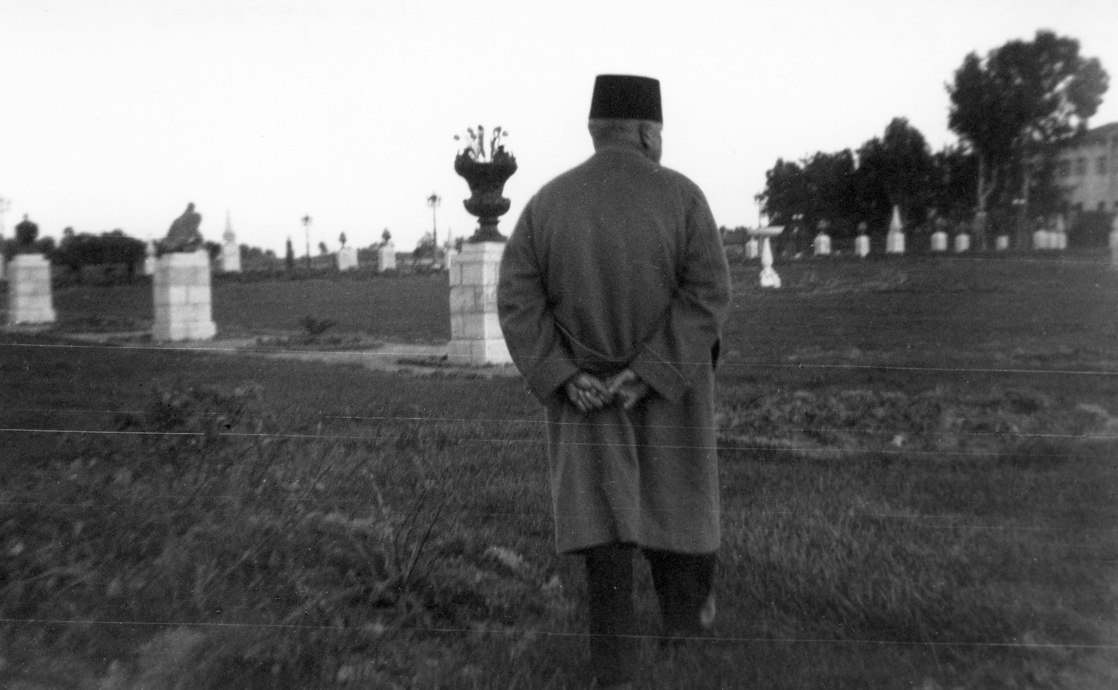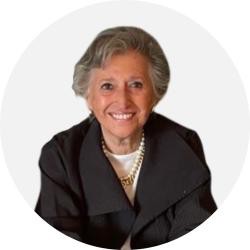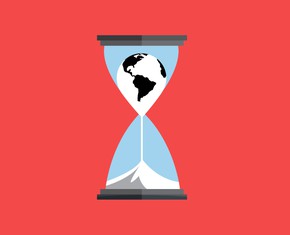The views expressed in our content reflect individual perspectives and do not represent the authoritative views of the Baha'i Faith.
In 1952, Meherangiz Munsiff and her family had the bounty of going on pilgrimage to the Holy Land. In Haifa and Akka, Israel, they fulfilled their dearest wish — to visit and pray at the Baha’i Shrines:
O thou who hast attained unto the Threshold of that Shrine which is sacred unto all the world and the envy of the most exalted Paradise! Praised be God that thou hast, through the gracious favour of the Lord, attained the honour of pilgrimage … Thou hast encountered that which hath been the utmost desire of the loftiest angels. Thou hast offered thine all in the path of the Beloved, and hast hastened to attain His nearness. How fortunate art thou! Wherefore, unloose thy tongue in praise … that the divine confirmations may become all-encompassing, and Divine Unity, like unto a flame, may blaze in the chamber of thy heart and burn away all the veils.
That passage from the writings of Abdu’l-Baha came true for them all, and Amatu’l-Baha Ruhiyyih Khanum — the wife of the Guardian of the Baha’i Faith, Shoghi Effendi — would later remind Meherangiz on a number of occasions how unique their visit was.
Meherangiz’s own recollections of those precious days explain why.
RELATED: Reflections on a Baha’i Pilgrimage
Her recollections are not chronologically arranged or exhaustive, as many of the emotions she experienced seemed too harrowing for her to share. The accounts which follow were collated from various talks and conversations, and at best should be regarded as memories of someone who was almost in a trance-like state for the duration of her pilgrimage.
After being in the presence of Shoghi Effendi every evening for an hour and a half alone, with (five-year-old) Jyoti, sometimes with Ruhiyyih Khanum present, my love for Baha’u’llah greatly intensified. It is the Guardian who said that we must become “intoxicated lovers.” I can honestly say that after meeting the Guardian my soul was truly wedded to the Cause of Baha’u’llah.
It is almost impossible to put things into words, but I will try because when I was a teenager and I heard that now, in place of Abdu’l-Baha, Shoghi Effendi had come to guide us and protect us, I became totally reliant on him as my source of guidance and ultimately my destiny for all my future actions. I already loved Abdu’l-Baha because my Aunt Dawlatmai had told me all about Him. She and her husband had visited the Holy Land three times during the life of Abdu’l-Baha and were always sharing stories. (How I wish I had paid closer attention to her stories when I was growing up, but I thought I knew everything at that time and couldn’t be bothered!)
When I was just a little girl of seven, I dreamt of Abdu’l-Baha. … And then when I was a teenager I learned Shoghi Effendi was now in charge. I think I must have said to my aunt, “How lucky you are that you were able to meet Abdu’l-Baha, and some people who were even blessed by being in the presence of Baha’u’llah, and I have met no one and am unlikely to. Why was I born at such a time … that I can’t meet Abdu’l-Baha?”
“Oh”, she said, “but now, you know, Abdu’l-Baha’s grandson is in charge. Shoghi Effendi, he’s our beloved Guardian. People do go on pilgrimage to meet him and it’s wonderful.”
Somehow I was comforted by these assuring words and my heart was enveloped in a tranquil peace. I wanted to meet Shoghi Effendi. Frequently, I used to weep at night because I so wanted to meet the Guardian but I couldn’t believe that I would ever get the chance. You have to understand I came from an extremely poor family in India with a father who was not supportive of me as a Baha’i.
In 1944 Shoghi Effendi wrote to the National Spiritual Assembly of India that as much publicity as possible should be given for the celebration of the Centenary of the Declaration of the Bab, 1844 to 1944. From morning to night I worked very hard with Shirin Fozdar who was the daughter of my mother’s sister. We hired Cowasji Jehangir Hall, which was a very big public hall in Bombay, and I was told to put up very large posters. Apparently, I could have gone to prison for putting up these posters, as they were 4ft large and during the war there was a restriction on using only A3 size posters. Fortunately, I got away with it. We thought we had done everything in readiness for the meeting, including securing the Governor’s secretary to take the chair.
All seemed in order, and Shirin and I went out early in the morning to do some errands and when we came back it was lunch time … waiting for us was a letter delivered by hand from the Commissioner of Police. Shirin read it and said, “Oh, my God!”
I asked “What’s happened?”
She said, “The Police Commissioner has banned our public meeting.”
It was about a quarter to one, and Shirin said, “Before we figure out what we should do let’s eat, I’m hungry.” And as she sat down to eat, I sat on the sofa.
Now, normally in our house, Akka would be on my left, and Shoghi Effendi’s photograph was on the right. As a child when I talked to Abdu’l-Baha, I had turned to his photograph and said, “Now, what?” But on this occasion I said to myself, “Now, what, Shoghi Effendi?”
To think I had done so much, prepared even to go to prison because of these posters, and now this. Very clearly, very clearly in my right ear, I heard a voice: “Go and see the Police Commissioner, immediately! Immediately! Immediately!” The voice repeated the word “Immediately” three times. And suddenly some power came over me, and I said to Shirin, as she was putting food in her mouth, “Stop! We have to go right away.”
Shirin said, “For heaven’s sake, it’s lunch time. There’s nobody there now. We’ll go after lunch.”
I said, “No. We’re going now.” And I insisted, “We must go now. Immediately.”
And she uncharacteristically obeyed and left her lunch to come with me. And then her husband, Dr. Fozdar, who was a very powerful man in our family and whom everybody was scared of, said, “Where are you going?”
I said, “I’m going to the Police Commissioner … right now!”
He said, “I’m also coming.”
So I agreed, and off we went. The police station was across the road from where we lived, and maybe about a three-minute walk. For some reason on this day, I took a taxi.
Shirin said, “Why are you taking a taxi?”
I replied, “Get in and don’t talk.” I was twenty-two years younger than Shirin Fozdar and had never in my life dared to have spoken like that to her or her husband Dr. Fozdar. To this day I don’t know what came over me but they both got in the taxi and travelled the short distance to the Police Commissioner’s.
When we arrived I said, “Now Dr. Fozdar, you will sit down here in the waiting room.” And miraculously he obeyed. It was as if I had a lamb with me, not a lion, which was his usual controlling demeanor.
RELATED: Reflecting on Baha’i Pilgrimage: Celebrating the Bab
I said to him, “Say the Tablet of Ahmad” [one of Baha’u’llah’s prayers]. And to Shirin, I said, “We’ll go, the two of us. I will pray. You will talk to the Commissioner.”
We walked in and Shirin said to the Commissioner, “Why have you banned us?”
He said, “Because we had reports that there would be a riot.”
She said, “There will be no riot. There may be a few street people but they are unlikely to do anything. We guarantee there will be no riot at all.”
He looked at us. Then he said, “Okay.” He picked up the phone, called the secretary of the Secretary to the Governor and said, “The meeting is on. You may go.” He put down the phone, looked round, and said, “Ladies, do you know how lucky you are? If you had come five minutes later, I would have left for my holidays and nobody would have changed the decision.”
That was my first experience with Shoghi Effendi’s power. For decades I never told anybody about this incident. Furthermore, at that time I didn’t know whose voice it was that had spoken to me. Only much later did I find out that it was Shoghi Effendi’s voice. I had heard a voice, and I knew it was help from him, but it never occurred to me that it was his voice.
These BahaiTeachings.org essays are adapted from the book “Lifeline: A Life of Prayer and Service as Experienced by Meherangiz Munsiff, Knight of Baha’u’llah,” written by Meherangiz and Jyoti Munsiff in collaboration with Pixie McCallum, published by George Ronald, Oxford, reprinted with permission and available at www.grbooks.com.
















Comments
Sign in or create an account
Continue with Googleor